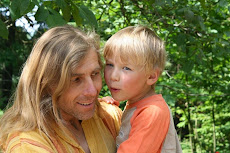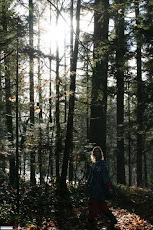Today really is my last last day in Canada. Sitting at the airport after a beautiful, exhausting week/month of goodbyes and leavings. Last day of school, last day of work, last soccer practice, dance performance, neighbour dinner, friends beach walk. Last drive past the most beautiful vista on Vancouver Island (Bench Road at Wilson, when the road from the highway suddenly opens up to rolling hay fields with the mountains behind and the sun/moon always throwing crazy sideways light). Last meal from Auntie Marj (buffalo) and last bottle feeding of Jackson (new baby buffalo). I blurted out at my last men's group that I was about done with leaving and ready to start living.
In the midst of those beautiful goodbye's there was scarce time for contemplating what comes next. Friends kept asking how it felt to be going to Costa Rica, and all I could stammer was how good it felt to be present right here, right now, fully living the rich blessing that is our life in the Cowichan Valley.
Then when we finally left the island, there were these last 10 days of camping, visiting Uncle Roy's ranch in the Quesnel hills, supporting G's team winning bronze in the provincial cup (3rd best team in the whole darn province!). Driving over 1,200 amazing BC miles (thanks for the car,mom1) through canyons, evergreen mountains, high plains ranchland and deserts, green crystal lakes, forest fires, and as many Dairy Queens as a team of teenagers could wrangle. We live in a diverse, awe-inspiring part of the world - Monteverde will be equally but differently beautiful, but I will always know what I'm coming home to in 2 years.
Then today, the real last day, was about everything except me and my trip. Dropped the family at the airport at 6am, then retrieved the dog (Snug) and spent 3 hours checking her in. Back to our squatter house in Vancouver to spend some hours of laundry, cleaning and caring to show deep thanks to those dear friends. And a note and some money for the neighbour girl who watched Syd the cat during our trip, and her parents who jumped in with some logistical burocratic acrobatics. Then an hour washing my mom's car inside and out to show more deep thanks. Then pizza with good ol' Uncle Phil in gratitude for him caring for Snug for the week, and all he gives our family. A day of honouring just some of the many people who have supported this transition in surprising, all-the-shades-of-the-sunset ways.
Now AT LAST it's just me and a cat in the airport, 3 hours early. Realizing that I need to re-read all the emails from Costa Rica helping me get my head in to the game. And the job description. And even my job application, what made me want and believe this to be Right. Realizing that I have no real idea what it's going to be like, what I'm going to do each day - okay, I always knew that I didn't know that, but realizing now that it is just a little scary. My head believes, from experience as well as faith, that all I really need is openness and commitment to make this work, and that flexibility and lack of pre-conceived notions is the best way to enter. But that little piece that would like to Know kinda wishes I knew my schedule, what my co-workers' voices sound like, how that fancy job description translates into a job. That my Spanish was already one-month into being back in the flow. That my wife and kids weren't coming 12 days after me (visiting family in Chicago - more of the celebrating supportive good people in our lives). That I already knew what Head of School really looks and feels like.
It'll all come soon. Two families have offered to cook my first dinner tomorrow, and another invited us to a community welcoming potluck at the butterfly gardens. First day of work comes the morning after. First trip to the beach (working trip with my admin team) this weekend. First meeting with Spanish-speaking staff, first fresh mango, first time asking for the local discount price in the shops and restaurants, first Meeting with our new Quaker community. The lasts are finally over, and it's time for some firsts again.
Write to Renew
-
One of our previous graduates, the talented Jay Nahani, is leading us in a
Write to Renew workshop June 14th. For writers and non-writers alike, this
one-d...





















